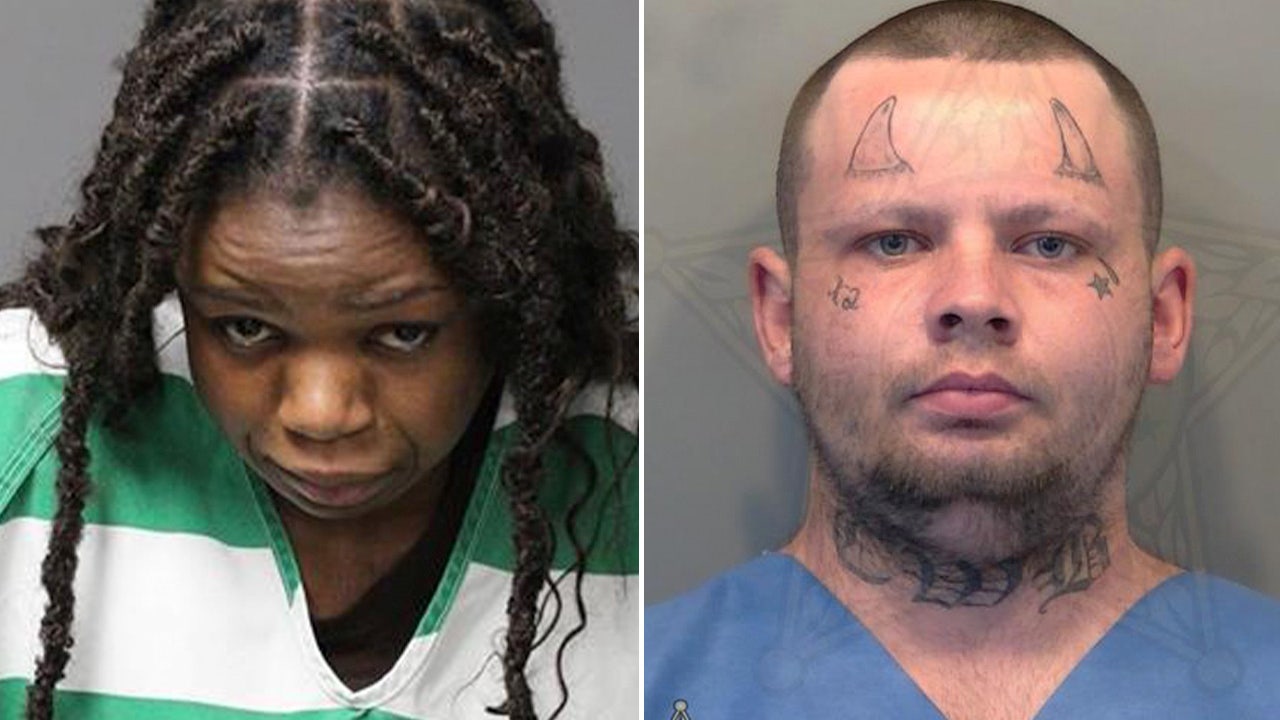High schooler to U.S. Marine
Florida veteran Jordan Hunkin voluntarily went to the VA for help, believing he was finally taking a step toward healing. He was only a teenager when he first expressed a desire to join the Marines, a testament to his determination and the honor he found in serving. “He said, I’m going in the military, mom; I want to be a Marine. I didn’t have a problem with it. I mean, to be in the military was an honor,” recalled his mother, Beverly Hunkin.
By the time he turned 17, Hunkin enlisted, making headlines in Tampa Bay when he chose military duty over his high school graduation—a choice that showcased his commitment to his country. For eight grueling years, he navigated the complexities of military life as a signal communicator in a top-secret electronic warfare unit, completing multiple tours in Iraq and Afghanistan.
Friend of veteran who was Baker Acted remembers him as someone eager to be a good Marine
After leaving the U.S. Marine Corps in 2012, Hunkin sought civilian contract work. But soon after, a gradual and concerning transformation became apparent to his family. “About 2015, he began to pull from us, and I did not know why. As the years went on, the further and further he got,” Beverly Hunkin shared. Medical records later revealed that his years of service had taken a toll on his health, as he suffered from multiple head injuries, a mild concussion, and post-traumatic stress disorder (PTSD).
Friends knew he wanted help, yet the road to recovery felt fraught with uncertainties. Marine James Hobby, who had trained alongside Jordan, remained a vital support, dedicating time to stay connected even after their military days came to an end.
“Don’t go to the VA. They’ll just kill you.”
“When he brought up that he was thinking about going to the VA, I got really worried because there’s been plenty of instances where guys do that, and it doesn’t turn out well,” Hobby recounted. This humorous yet grim sentiment echoed among veterans, serving as a means to deflect the harsh reality of a system that often disappoints. For Jordan, the mental challenges looming over him were no laughing matter.
In February 2023, after taking a day off from work, Jordan drove three hours to Malcolm Randall VA Hospital in Gainesville, Florida. He shared with friends that he planned to enter a voluntary long-term treatment program for his depression and PTSD. “He was convinced that there was this special combat veteran program that he was going to be able to attend that would help him with the issues that he was having,” remembered Hobby, who spoke to Jordan the night before his admission.
A few days later, amidst a whirlwind of uncertainty, Jordan reached out to Hobby.
“I don’t understand why I’m Baker Acted.”
“He was a completely, totally different person. He was very frantic; he was very distraught,” Hobby explained. What should have been a hopeful journey turned into a nightmare the moment Jordan requested the name of the individual he was supposed to meet. Without warning, he was tackled, restrained, and held under the state’s Baker Act for three days.
In Florida, the Baker Act allows professionals to initiate a 72-hour involuntary mental health evaluation for individuals seen as threats to themselves or others. Paradoxically, Jordan sought help voluntarily, firmly stating that he was not suicidal. Ironically, he was even commended for his bravery in seeking assistance. Nevertheless, the VA’s actions led him down a path of bewilderment and despair.
Records indicate that Jordan was utterly taken aback by this turn of events. He told staff, “This place is not what I expected,” repeatedly expressing confusion over why he was detained. After only two days, he was released, yet the experience left an indelible scar. “At that point, he felt that whoever he asked for help was just going to hold him against his will again,” Hobby noted. “It’s wrong, it’s all wrong.”
Tragically, just six months later, at the age of 36, Jordan Hunkin’s life ended by suicide. “It’s just a shock,” his mother said, grappling with the reality of her son’s untimely death. Family and friends felt the paradox of the system had driven him beyond his limits.
“Absolutely, because afterward, he was a completely, totally different person,” Hobby added, describing how the trauma of his Baker Act experience caused Jordan to quit his job and stop paying his mortgage. He eventually moved to Texas, adopting a new life, but the darkness remained.
Friend of former Marine who was wrongfully Baker Acted believes he would be alive if hospital took accountability
“You threw my son under the bus. You didn’t take care of him,” Beverly Hunkin lamented, her heart heavy with grief and disappointment toward the healthcare system. Angered by how Jordan was treated, Hobby reached out to the VA’s hotline only to find complaints were promptly closed without further investigation.
“So, they’re immediately getting complaints that they should be looking into, and they’re throwing them in the trash,” he said, his frustration palpable. Refusing to remain silent, Hobby pursued a higher path until he caught the attention of the VA’s Office of Inspector General, who eventually investigated Jordan’s case.
A few months later, the Inspector General’s report revealed serious lapses in protocol; Jordan had indeed been wrongly Baker Acted, and his rights were violated. Though the report remained anonymous, both Hobby and Beverly Hunkin confirmed it referred to Jordan’s treatment.
“It definitely was a significant failure.”
The Inspector General’s findings unveiled systemic issues. Hospital staff lacked annual Baker Act training and oversight protocols, with no tracking of incidents. The report hinted that what transpired with Jordan was not an isolated incident but rather a reflection of a larger problem affecting many veterans.
“This seems like it’s a way bigger issue,” Hobby proclaimed, capturing the essence of a concerning reality. “It definitely was a significant failure,” VA official Susan Tostenrude acknowledged openly. She explained that the VA operates under guidelines that can conflict with Florida’s legal standards surrounding mental health evaluations. This raised questions about whether such misapplications of the Baker Act were a pervasive problem within VA hospitals nationwide.
Studies consistently show a clear and troubling trend: veterans involuntarily admitted are at a significantly higher risk of suicide in the year following such incidents. Though Jordan tragically took his life six months post-Baker Act, the Inspector General’s report stopped short of directly linking the hospital’s actions to his death. Yet, it did recognize that the experience likely contributed to a sense of betrayal felt by Jordan toward the VA. This feeling of being “misled” ultimately led to his disengagement from the very institution he had trusted to help him.
“Some people have a great experience with the VA, and then some people die,” Hobby reflected, heartbroken. He now advocates for accountability, believing Jordan’s treatment should not reduce his story to just another statistic of suicide. His friends and family assert that Jordan’s struggles deserved more attention—a promise that his death would be treated with the same seriousness as a loss on the battlefield.
“I want them to work to help these men and women. These guys are coming to you for help,” Beverly Hunkin emphasized, channeling her loss into a call for change and greater support for veterans.
Mother of veteran who was Baker Acted calls for change
Despite the outcry for reform, officials at Malcolm Randall VA Hospital declined an on-camera interview, instead releasing a statement focused on preventing veteran suicides. “Preventing Veteran suicide is our highest priority, and we take this responsibility with the utmost seriousness,” the spokesperson said. They expressed devastation over Jordan’s death, promising committed efforts to understand and rectify these kinds of failures moving forward. A renewed emphasis on training and protocols regarding Florida’s Baker Act laws is now underway, showcasing a commitment to protect and serve those who once served the nation.
If you find yourself in crisis, help is available. You can call, text, or chat with the Suicide and Crisis Lifeline by contacting 988, or reach out to the Crisis Text Line by texting TALK to 741741.
Send your story ideas and tips to investigative journalist Katie LaGrone.




































